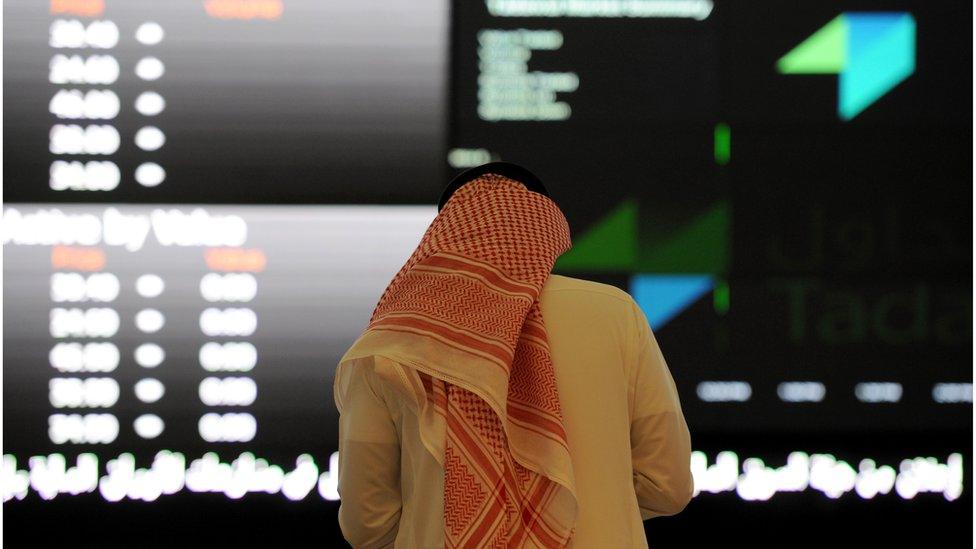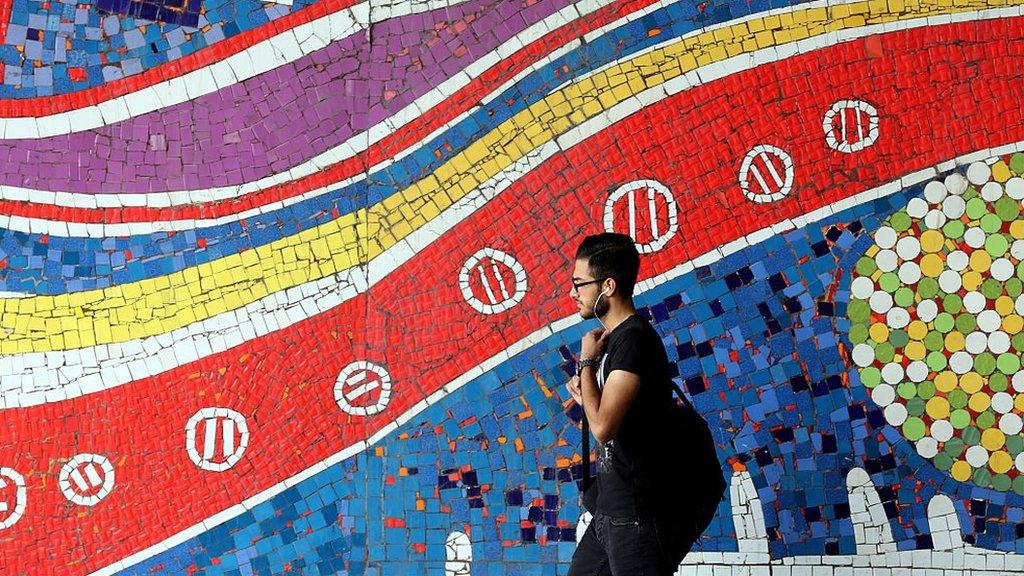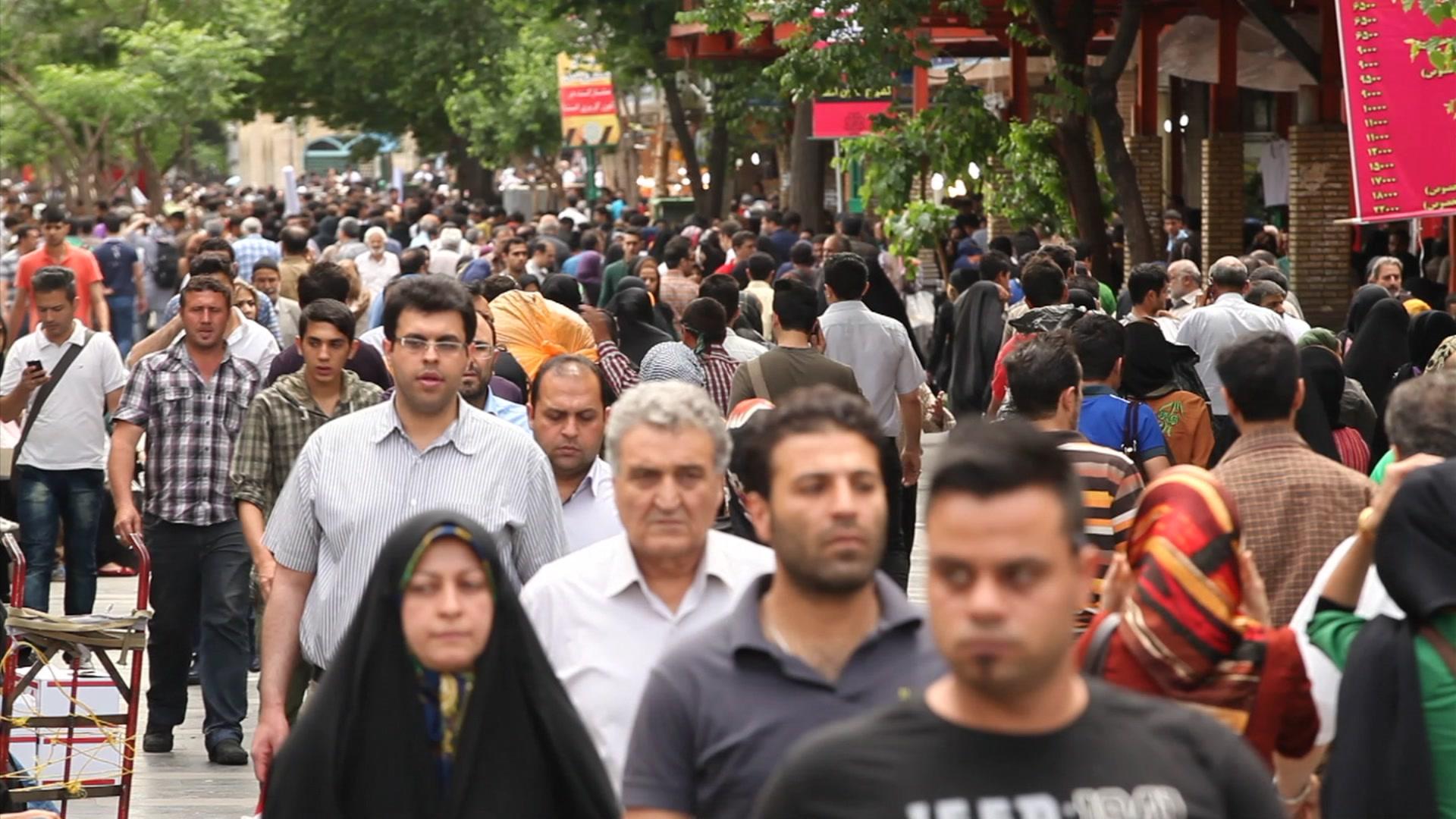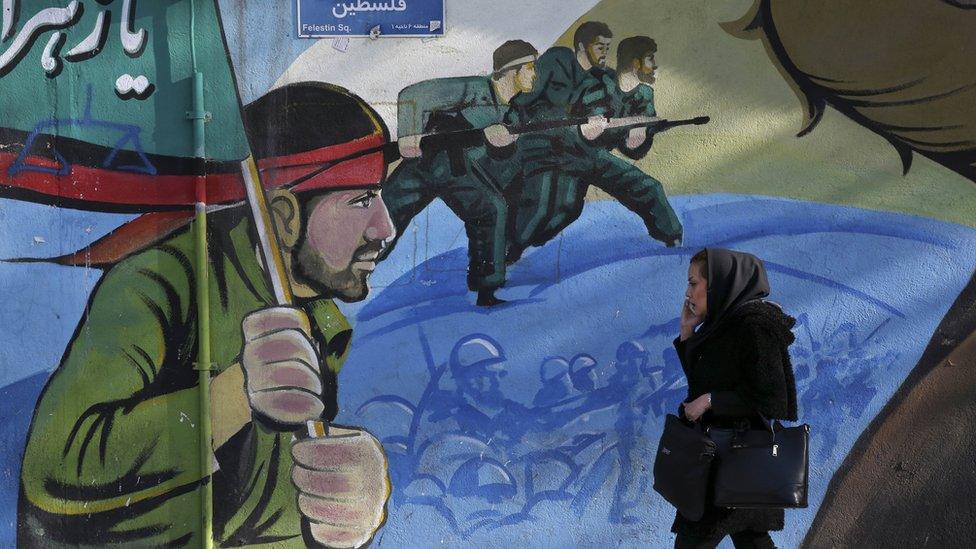Iran sanctions: Gulf stocks down on oil price fears
- Published

Shares on the Saudi Arabia Stock Exchange tumbled in early trading
Share prices in oil-rich Gulf states have dropped sharply after the lifting of economic sanctions on Iran.
The Saudi Arabia Stock Exchange fell 5.4% on Sunday, while the Qatar Exchange closed down 7% and Dubai's stocks dropped 4.6%.
Those exchanges are dominated by energy firms who fear oil will fall further from its current 12-year low of $29 when Iran resumes oil exports.
Iran has said it will sell up to 500,000 extra barrels of crude oil.
Economic sanctions, in place for nearly 40 years, were lifted after inspectors confirmed on Saturday that Iran had taken the required steps to limit its nuclear programme.
What Iran deal means for world markets
Iran sanctions deal in 60 seconds
Will Tehran now get a McDonald's?
Investors reacted immediately in the first day of trading in the Muslim week.
The Saudi Tadawul All Share Index, the largest market in the region, dropped during trading to its lowest level since early 2011, closing at 5,520 points.
Share prices in all six of the other Gulf stock exchanges also dropped, as investors weighed up a stronger Iranian economy and extra oil in an already over-supplied market.
Saudi Arabia's oil minister Ali al-Naimi said it would take "some time" to restore stability to the global oil market, but added that he remained optimistic.

Analysis: Joe Lynam, BBC business correspondent
It's a bit surprising that markets are surprised - Iran has promised since the Vienna agreement was signed in July to pump 500,000 additional barrels of crude per day when sanctions were lifted.
Most oil traders have accelerated their sell-off of oil, gas and energy companies in the run up to Saturday's well flagged announcement by the IAEA (International Atomic Energy Agency).
And yet there's been a rout on Gulf stock markets today (Sunday is a full trading day in the Middle East).
In fact, the Tadawul All Share Index in Riyadh has halved since the summer of 2014 when oil prices started their precipitous fall from $115 to $29 per barrel.
Although Gulf nations are petroleum-based economies, listed companies in most sectors were down - apart from Iran of course. That's because Iran is now expected to be the main beneficiary of billions of dollars of new investment from the West - money which might have previously been spent in other Gulf nations.

Iranian President Hassan Rouhani said on Sunday that the deal was "a turning point" for Iran's economy.
The lifting of sanctions also enables Iran to use the global financial system for trade.
Estimates say close to $100bn (£70bn) of Iranian assets will be unlocked under the nuclear deal.
- Published16 January 2016

- Published17 January 2016

- Published17 January 2016
